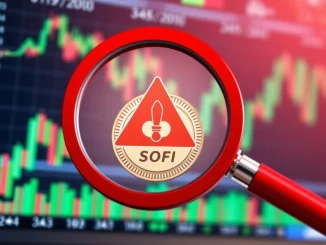
In a significant win for the cryptocurrency industry in South Korea, the Supreme Court has once again sided with crypto exchanges, this time nullifying a substantial tax levy on Coinone. Following a similar ruling in favor of Bithumb, this latest decision casts a spotlight on the ongoing debate surrounding South Korea crypto tax regulations and their application to digital assets. Are South Korean crypto exchanges finally breathing a sigh of relief? Let’s delve into the details of this pivotal ruling and what it means for the future of crypto in South Korea.
Another Win for Crypto Exchanges: Supreme Court Sides with Coinone
Just like Bithumb’s earlier triumph, Coinone, another major player in the South Korean crypto exchange market, has secured a favorable judgment from the highest court. The Supreme Court overturned the National Tax Service’s (NTS) 2018 decision to impose a 130 million won ($90,321) miscellaneous income tax on Coinone. This tax included concerns about withholding taxes related to non-resident investors, adding another layer of complexity to the case.
This ruling mirrors the previous annulment of the NTS’s tax assessment on Bithumb, where the court canceled a staggering 73.1 billion won ($50.79 million) in miscellaneous income tax and an additional 200 million won ($139,000) in corporate tax. These consecutive judgments signal a potentially significant shift in how South Korean authorities approach crypto exchange tax regulations.
What Led to the Supreme Court’s Decision on Coinone’s Tax?
The core of the dispute lies in the classification of cryptocurrency transactions and the resulting tax implications. The NTS had initially categorized certain crypto-related income as ‘miscellaneous income,’ subjecting it to higher tax rates. However, both Coinone and Bithumb challenged this classification, arguing that the nature of crypto trading and exchange activities did not fit the definition of miscellaneous income under existing tax laws.
Key points that likely influenced the Supreme Court’s decision include:
- Lack of Specific Crypto Tax Laws: In 2018, when the NTS issued these tax rulings, South Korea lacked specific legislation tailored to cryptocurrency taxation. This ambiguity likely weakened the NTS’s legal grounds for imposing miscellaneous income tax.
- Nature of Crypto Exchange Operations: Crypto exchanges facilitate trading and provide platforms for users to buy and sell digital assets. Arguably, their income is more akin to business revenue rather than ‘miscellaneous income,’ which typically covers less regular or defined income sources.
- International Precedent and Evolving Regulations: Globally, tax regulations for cryptocurrencies are still evolving. Courts may be considering international precedents and the ongoing development of crypto-specific tax frameworks when making judgments.
Bithumb and Coinone Cases: A Turning Point for Crypto Tax in South Korea?
The back-to-back Supreme Court rulings in favor of Bithumb and Coinone are undeniably impactful. Are these isolated incidents, or do they represent a more profound shift in South Korea’s approach to crypto taxation? While it’s too early to declare a complete overhaul, these rulings strongly suggest a need for:
- Clarity in Crypto Tax Legislation: The rulings highlight the urgent need for clear and specific laws governing cryptocurrency taxation in South Korea. Ambiguity in existing laws is causing confusion and legal challenges.
- Fair and Consistent Tax Frameworks: Crypto businesses are seeking a fair and consistent tax framework that recognizes the unique nature of digital asset transactions and aligns with international standards.
- Reduced Regulatory Uncertainty: These legal victories can contribute to reducing regulatory uncertainty in the South Korean crypto market, potentially attracting more investment and fostering innovation.
What are the Broader Implications of the Supreme Court Ruling?
Beyond Coinone and Bithumb, these Supreme Court decisions have far-reaching implications for the entire South Korean crypto ecosystem. Let’s explore some of the key takeaways:
- Relief for Crypto Exchanges: The immediate benefit is financial relief for crypto exchanges facing hefty tax bills based on ambiguous classifications. This allows them to reinvest in their platforms and services.
- Potential for Revised Tax Assessments: Other crypto businesses that received similar tax assessments in the past might now have grounds to challenge them based on these Supreme Court precedents.
- Increased Investor Confidence: Clearer and fairer tax regulations, even if achieved through court rulings, can boost investor confidence in the South Korean crypto market.
- Pressure on Lawmakers: The rulings put pressure on South Korean lawmakers to expedite the development and implementation of comprehensive and well-defined crypto tax laws.
Navigating the Future of Crypto Tax in South Korea
While the Supreme Court rulings are undoubtedly positive developments for the crypto industry, the journey towards a stable and predictable South Korea crypto tax environment is ongoing. Here are some crucial aspects to consider as we move forward:
| Aspect | Considerations |
|---|---|
| Legislative Action | Expect increased legislative activity to create specific crypto tax laws. This will likely involve defining different categories of crypto income and setting appropriate tax rates. |
| International Alignment | South Korea will likely look to international best practices and evolving global standards in crypto taxation to ensure its regulations are competitive and compliant. |
| Industry Consultation | Meaningful consultation with the crypto industry is crucial to develop practical and effective tax laws that don’t stifle innovation. |
| Enforcement and Compliance | Once new laws are in place, clear guidelines and support for compliance will be essential for both crypto businesses and individual investors. |
Conclusion: A Step Towards Clarity in South Korean Crypto Tax
The Supreme Court’s decision to nullify the tax on Coinone, following the earlier victory for Bithumb, marks a significant moment for the cryptocurrency landscape in South Korea. These rulings are not just legal victories for individual exchanges; they represent a powerful push towards greater clarity and fairness in Supreme Court ruling related to crypto taxation. As South Korea navigates the evolving world of digital assets, these landmark cases will undoubtedly shape the future regulatory environment, hopefully fostering a more robust and innovative crypto industry. The message is clear: the era of ambiguous tax classifications for crypto in South Korea may be drawing to a close, paving the way for a more defined and predictable future.



